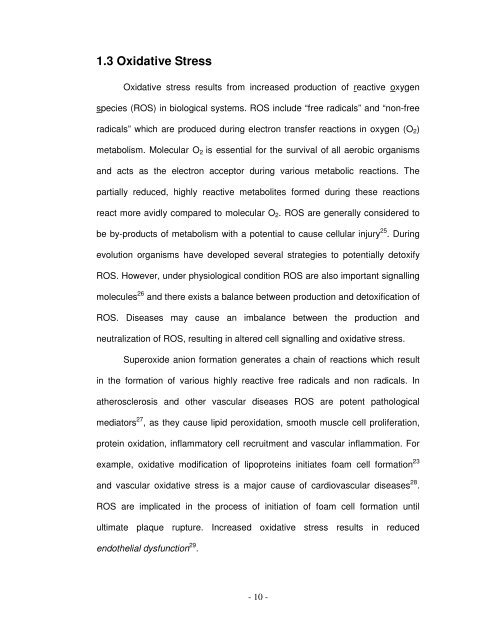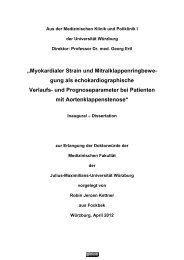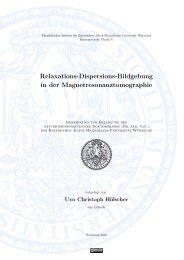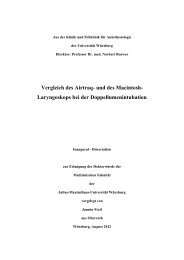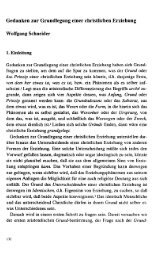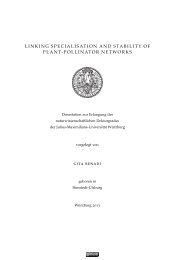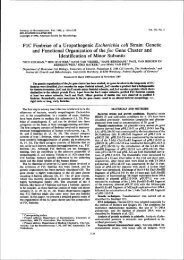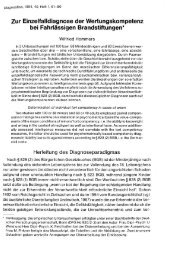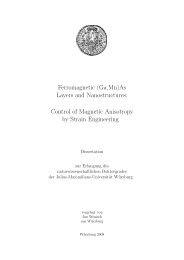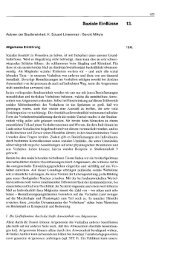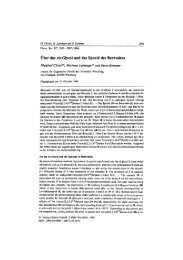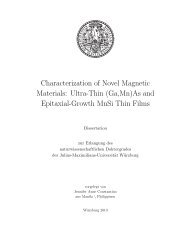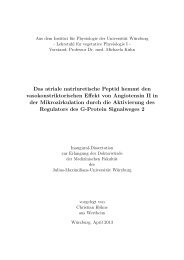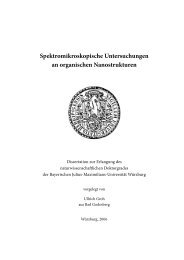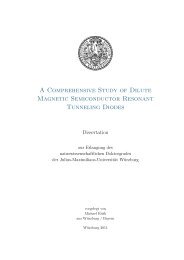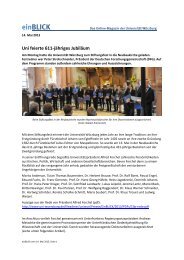First 11 pages of thesis. - OPUS - Universität Würzburg
First 11 pages of thesis. - OPUS - Universität Würzburg
First 11 pages of thesis. - OPUS - Universität Würzburg
You also want an ePaper? Increase the reach of your titles
YUMPU automatically turns print PDFs into web optimized ePapers that Google loves.
1.3 Oxidative Stress<br />
Oxidative stress results from increased production <strong>of</strong> reactive oxygen<br />
species (ROS) in biological systems. ROS include “free radicals” and “non-free<br />
radicals” which are produced during electron transfer reactions in oxygen (O2)<br />
metabolism. Molecular O2 is essential for the survival <strong>of</strong> all aerobic organisms<br />
and acts as the electron acceptor during various metabolic reactions. The<br />
partially reduced, highly reactive metabolites formed during these reactions<br />
react more avidly compared to molecular O2. ROS are generally considered to<br />
be by-products <strong>of</strong> metabolism with a potential to cause cellular injury 25 . During<br />
evolution organisms have developed several strategies to potentially detoxify<br />
ROS. However, under physiological condition ROS are also important signalling<br />
molecules 26 and there exists a balance between production and detoxification <strong>of</strong><br />
ROS. Diseases may cause an imbalance between the production and<br />
neutralization <strong>of</strong> ROS, resulting in altered cell signalling and oxidative stress.<br />
Superoxide anion formation generates a chain <strong>of</strong> reactions which result<br />
in the formation <strong>of</strong> various highly reactive free radicals and non radicals. In<br />
atherosclerosis and other vascular diseases ROS are potent pathological<br />
mediators 27 , as they cause lipid peroxidation, smooth muscle cell proliferation,<br />
protein oxidation, inflammatory cell recruitment and vascular inflammation. For<br />
example, oxidative modification <strong>of</strong> lipoproteins initiates foam cell formation 23<br />
and vascular oxidative stress is a major cause <strong>of</strong> cardiovascular diseases 28 .<br />
ROS are implicated in the process <strong>of</strong> initiation <strong>of</strong> foam cell formation until<br />
ultimate plaque rupture. Increased oxidative stress results in reduced<br />
endothelial dysfunction 29 .<br />
- 10 -


